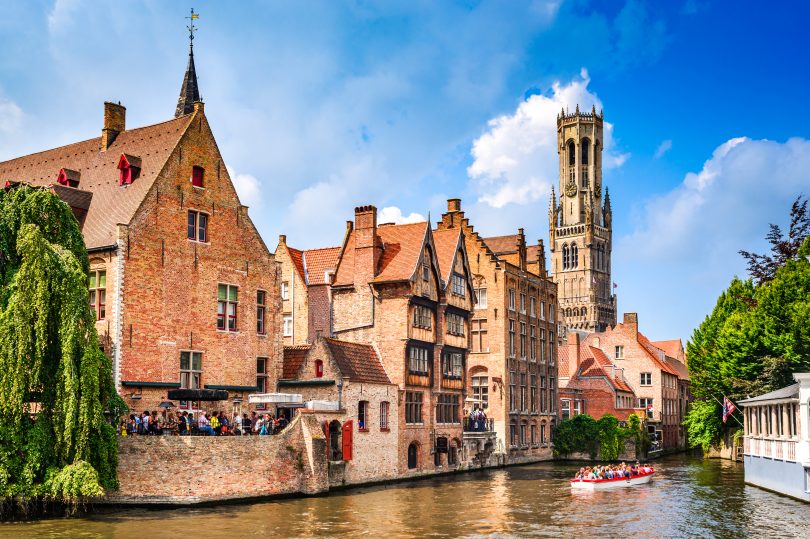Getting in on the new medical cannabis and CBD industries is all the rage globally. Countries that started out slow, like Belgium, are quickly picking up the pace as these markets expand very fast, opening new possibilities for self-production and global exportation.
When legalizing cannabis for medicinal use first became a thing, the idea of it was clearer and more direct than it is today; it meant legalizing cannabis for residents of a country with specific medical issues. And it still does a lot of the time, but it doesn’t have to anymore.
When looking at most countries which have legalized medicinal programs, there is often a set of laws for the legalization of using medical marijuana, and then another set of laws on the business end legalizing the cultivation and production for medical use (whether in the country it was grown in or for exportation). Some countries, like Lesotho, skipped the entire first step of legalizing for its own residents, going straight – and only – to the business end.
Belgium followed suit with the standard here, instituting a medical cannabis program several years ago, which is only now taking off with the advent of laws to open up the business end to cultivating and production in Belgium itself.
Looking for the BEST smokable hemp flowers? Subscribe to the CBD Flowers Weekly newsletter, below:
Cannabis laws in Belgium
Belgium is a country with in-between laws when it comes to cannabis permissibility. From personal use rights, to Spanish-style social clubs, to hemp-loopholes, Belgium has been on the liberal side of cannabis for quite some time, while always keeping a strong hold on what can be legally offered.
Like in most places, possession of cannabis is illegal in Belgium. Personal use laws established in 2003 allow for small amounts of cannabis without prosecution, with more specific stipulations laid out in 2005 specifying this small amount to be three grams. Smoking close to places involving children can incur 3-12 months in prison and/or a fine of €8,000-800,000 (adjusted for inflation).
Selling cannabis is illegal, as well as all supply crimes, however, when it comes to growing, residents are allowed to grow one plant. Any more than the one is a legal gray area, and any plant grown must contain .2% THC or less.
Cannabis social clubs
Cannabis social clubs are generally associated with a gray area in Spanish law that creates a loophole whereby clubs (private organizations) can be created in which members have access to cannabis without legal repercussion. Using personal use laws, and laws relating to the operation of enterprises, and the land they’re on, Spain’s social clubs have operated pretty freely over the years and essentially become a given part of culture in the country.
Of course, these social clubs exist in many more places including Germany, Austria, Slovenia, and Belgium. Belgium’s model is based off the Spanish model (as every country requires some sort of legal loophole for these clubs to base their legal framework on). The first one was started in 2006, and now a handful are in operation.
Medical Cannabis
In 2015, Belgium legalized the use of approved medical marijuana products like Sativex, and CBD powder. Only medications like these were approved, and not actual cannabis flowers. One of the stipulations for medications was that there could be no trace amounts of THC in magisterial preparations for medical use. This greatly limited the amount of CBD – cannabidiol – preparations that could be used as nearly all have some trace amount of THC in them. This meant that the only medications possible were prepackaged ones with no THC content.
Epidyolex Approved For Use In Over 30 European Countries
In July of 2019, the Federal Agency for Medicines and Health Products (FAMHP), reinterpreted the Royal Decree of 2015 with the update that trace amounts of THC could be allowed in magisterial preparations so long as the contamination level is equivalent to .0005% or less. This new interpretation opened the door for more CBD products to be used medicinally. A 2017 Royal Decree made the clarification that cannabis-derived products (of the pre-packaged variety) could have up to .2% THC and still be legal (though this did not apply to the preparations listed above).
The Belgian system does not require patients to have a card, but rather to qualify for medications based on their conditions and symptoms. As per personal use laws, patients can grow one plant for their own use so long as the THC content is .2% or below.
The medical cannabis upgrade
On April 7, 2019, a law passed with provisions amending the Federal Agency for Medicines and Health Products, and which called for the institution of a cannabis office to oversee the commercial cultivation and production of cannabis in Belgium. This office has the ability to issue licenses for cultivation, as well as the ability to purchase the product from said growers for distribution within Belgium or for export to other countries.
With the inclusion of this law, Belgium has the ability to grow its own product for use rather than relying on importing from other countries. It also allows for entrance into the global medical marijuana market, including all profits that can be made both by government and in the private sector.
The hemp loophole
The same amendments that set up the legal framework for a commercial cannabis market, also set up regulation for the sale of hemp flowers with a THC content of .2% or less. Prior to this amendment, a loophole in Belgium’s industrial hemp laws, and a lack of clarity according to EU regulation, left an opening where hemp-derived products could be marketed as CBD products. And through this loophole, different retailers were able to pop up selling industrial hemp products as CBD products.
This, of course, is an in-between legal space as CBD products are meant to be sold as medicines, and medicines must be regulated by Belgium’s federal agencies. By not making any medical claims, sellers could get away without being regulated by the Federal Medicines Agency, or the Federal Agency for the Safety of the Food Chain, as that agency does not regulate CBD oils so long as they are listed as not for consumption. As such, by marketing the products correctly, purveyors were getting away with selling all cannabis products free of any regulation.
Apart from this failure in regulation, there was also a noticeable place to insert taxes by the government. Thus, in April of 2019, Belgium classified hemp flowers as smokable products to be considered and taxed as tobacco products – at a 25% rate! This kind of classification (with tobacco) has caused many problems in other countries, and will likely have to be re-examined as it becomes less tolerable to keep the two very different plants, legally together. For now, however, that’s the way the laws are structured, and CBD products are now subject to the same taxation, and legislation requirements for manufacturing and selling.
Smoking Hemp Flowers: An Effective Way To Take CBD?
Conclusion
Belgium isn’t the first country to do anything when it comes to cannabis, but it has remained on the more lax side when it comes to countries in the EU and beyond. With the inclusion of new provisions to govern the CBD and medicinal cannabis markets, Belgium is upping its legal cannabis game, and injecting new life into what was a slow-moving medical cannabis system.
It should be noted, however, that the new classification of smokable CBD flowers as tobacco products could cause some foreseeable confusion and concern in the future by legally binding the two types of products together.
Thanks for stopping by CBDtesters.co, your hub for all things business and medical cannabis-related. Stop by regularly and make sure to subscribe to the Medical Cannabis Weekly Newsletter to keep up-to-date.









